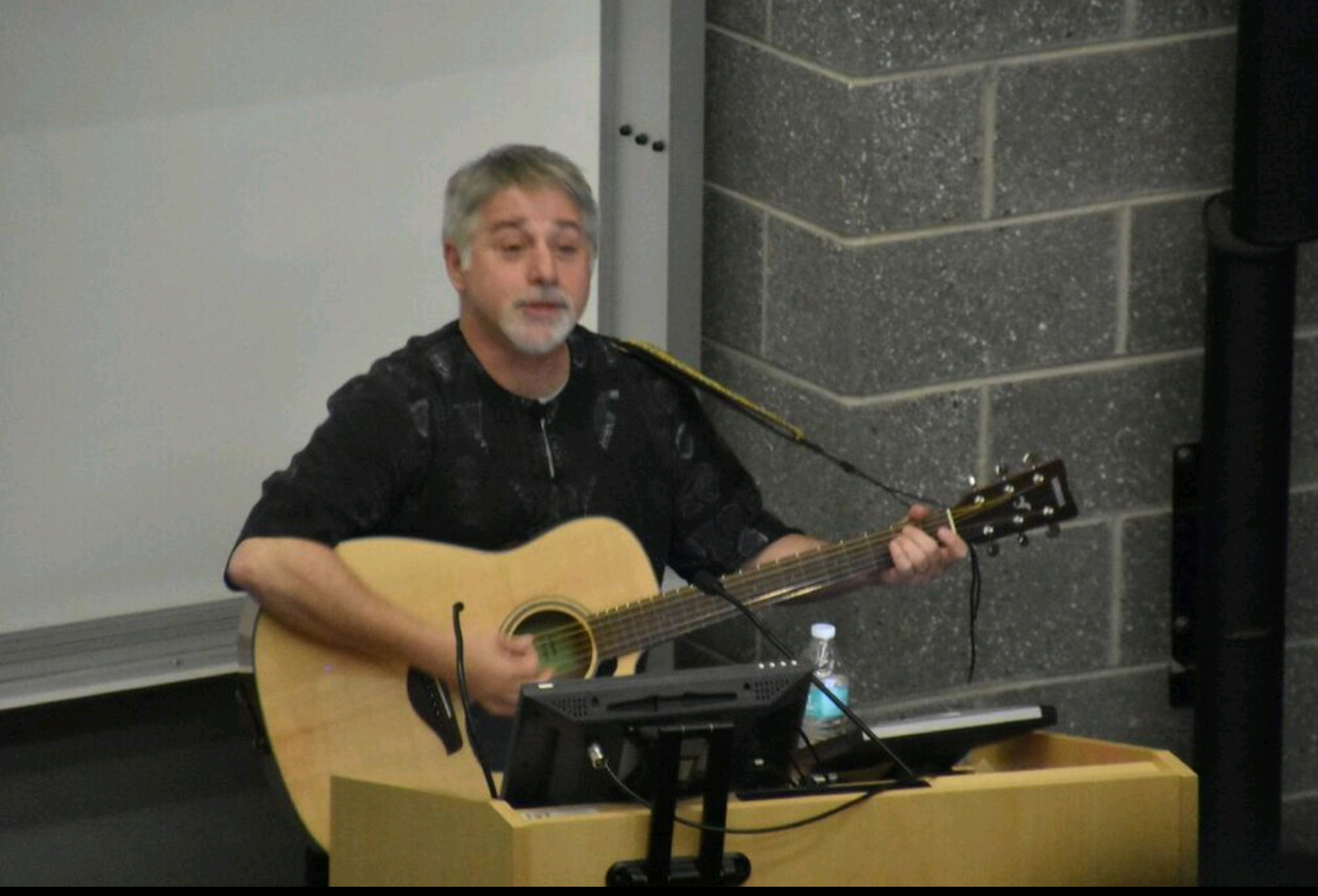
By Edita Bardhi
Opinion Editor
On Monday April 10, students were quickly engaged upon the Student Research & Activity Symposium that took place in Hoeffner Science and Technology Center (Sci-Tech).
With an early start of 9 a.m., the symposium involved a series of events for students to attend throughout the day. A group of poster presentations, a student computer game demonstration, a Sigma XI research and oral presentations were all presented.
In part of the series, Dr. Corey Dolgon, director of the office of community-based learning and professor of sociology at Stonehill College, came to speak at ESU as our Keynote Speaker.
Arranged at 7 p.m., Dolgon was astounded by the full audience in the Niedbala Auditorium. Even more, he was delighted to speak to students and share his insights.
Titled “Truthiness,” Junk Science, & Conventional Wisdom: Revolutionizing Knowledge for the 21st Century,” Dolgon’s speech reflected upon current political and social challenges within scholarly research. He also educated his audience about the logical ways one could address these social problems.
Initially, Dolgon used his recently published book, “Kill it to Save it” as a reference to his discussion.
“What I call ‘Kill it to Save it Paradigm,’ is really another way of thinking about common sense. What it is. How bad it is. My friend used to say, ‘There is no such thing a common sense, only common nonsense,’” said Dolgon.
In his speech, Dolgon spoke of how society dismisses historical facts and personal experiences to elaborate on the issues we face today. Instead, people believe their gut feeling is a representation of truthiness. Therefore, Dolgon argued in his book that society has witnessed a new ideological paradigm. One that has a major effect in political consciousness and decision making.
Dolgon then mentioned the only way to address this: getting rid of the public. For instance, the public must be replaced by a chartered education system. In this system, people will choose to buy and sell educational services.
Following that, Dolgon acknowledged that education has no longer become a public usage, but a private community. Everyone has taken part in purchasing the education.
Even so, the political and economic system are still a part of the educational aspect. More people are choosing to ignore wealth. Dolgon listed multiple things currently affected because of the ignorance.
“In part, Kill it to Save it represents the deliberation of environmental standards and the deliberation of labor rights all in the name of liberating the rights for greater corporate profit. The liberation has also meant reducing wages, working conditions, job protection, and health safety provisions for workers in their communities,” said Dolgon.
Dolgon then explained how the only way to create common sense is to have the legitimacy be created by knowledge. This legitimacy must be supported by common nonsense.
To represent these viewpoints, Dolgon provided the audience with a few videos, he titled them as “The Politics of Junk Science as Common Sense.”
Soon after discussing education, Dolgon addressed the audience about hunger. Like many other conditions, the treatment of hunger is looked upon by various organizations, however it is not enough to stop it. It is something that we must address.
“Meals on Wheels is an affective program and they do in fact work, but if you expect Meals on Wheels to stop hunger then that is a problem. It does not end hunger,” said Dolgon.
He stated how there is much research to support the theory that children who are left hungry do worse in school.
As the night went on, Dolgon shared his liking for folk music for he played two songs on his acoustic guitar: Garbage, and Our World is Not for Sale. During both songs, students sang along, cheered, and smiled.
Overall, Dolgon’s discussion flourished at reaching out to the audience.
Email Edita at:
ebardhi@live.esu.edu

